How much do Norwegians earn? We take a look at the minimum wages payable in selected industries.
It's widely known that Norway has some of the best salaries and best working conditions in the world. It's what attracts thousands of immigrants every year.
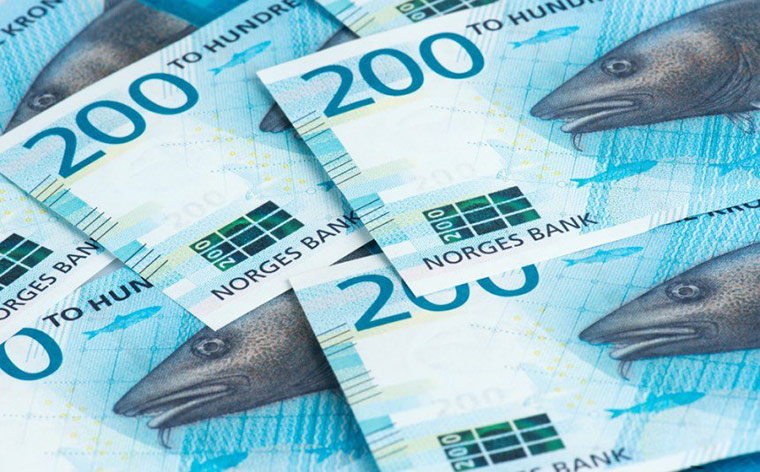
While that's absolutely true, there is a slightly complex situation when it comes to how much people actually earn. There's a lot of misinformation out there, so let's take a look at the truth.
Table of Contents
Salaries in Norway
First of all, it's true to say that salaries in Norway are, generally speaking, higher than in many European countries. This is especially true at the lower end of the market, such as for cleaners, restaurant workers and manual labourers.
However, at the higher end of the scale things can be different. Compensation packages for senior management are not always as competitive as in many other countries, such as the USA.
What this means is there is a smaller range of salaries in Norway than in many other places.

But how much does the average Norwegian earn? And why are salaries so high for relatively low-skilled jobs? And are they actually high when you have to pay a Norwegian cost of living? Let's find out.
The Norwegian minimum wage
Contrary to popular belief on discussion forums, there is no national minimum wage written into Norwegian law. Yet despite this fact, almost everyone receives a fair living wage.
How does this happen? Norway is heavily unionised and the vast majority of employees across a huge range of sectors belong to a trade union. Most trade unions are affiliated to a national federation, which is then usually affiliated to a main confederation of employees.
There are four main employee confederations, of which the largest is the Confederation of Norwegian Trade Unions, commonly known as LO. It has around 880,000 members, which when you compare to the population of around 5.3 million is quite something!
These unions come to collective agreements on salaries and working conditions with companies, which are then applied to all workers, not just union members.
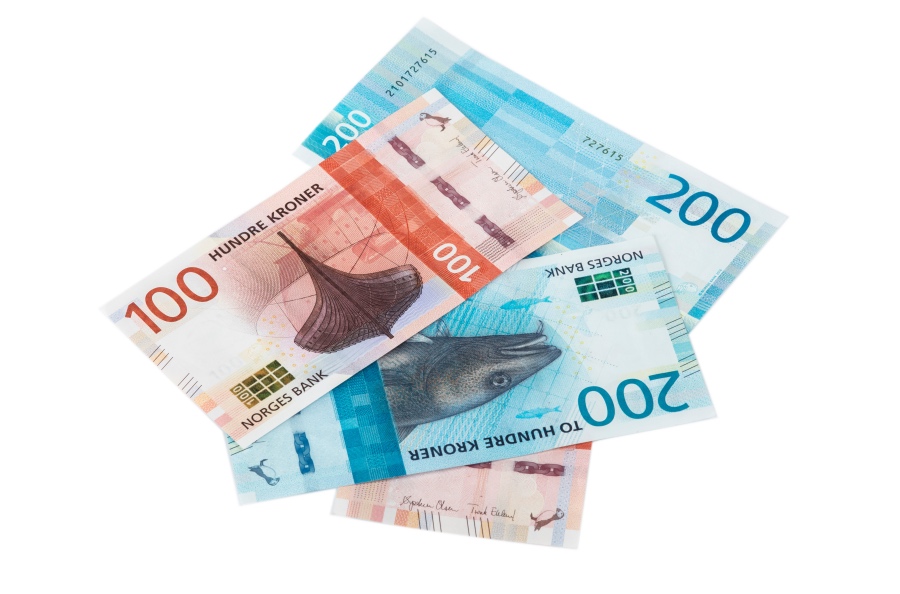
This general application of the collective agreements is in place partly to help prevent foreign workers from being taken advantage of.
Norway minimum wages by industry
Generally collective agreements feature one fixed hourly rate for everyone over the age of 18. There are often different rates to distinguish skilled from unskilled work, for overtime, and for younger workers.
Salary expectations vary hugely by industry, so now we'll take a look at some of the most relevant for foreigners living in Norway.
Agriculture & Farming
Seasonal work is common in the Norwegian agriculture industry. Foreigners—especially EU/EEA citizens—are often utilised for this type of temporary work. There have been cases where employers have taken advantage of employee’s lack of understanding of the laws. So, get clued up!
Seasonal workers must be paid at least NOK 118.65 for the first 12 weeks and NOK 124.15 thereafter. If the employment extends beyond six months, the employee is entitled to be paid the rate for permanent employees. Workers under the age of 18 must be paid a minimum of NOK 98.65.
For unskilled workers employed on a permanent basis, the minimum hourly rate is NOK 138.55 for those over 18 and NOK 108.15 for those under 18. A supplement of NOK 11.75 must be paid for skilled workers. There are supplements due for work on Saturday afternoons and Sundays.
Construction workers
The country is investing big in new buildings, roads, tunnels and bridges. As with a lot of manual labour in Norway, much of the workforce comes from overseas.
Skilled workers earn a minimum of NOK 197.90 per hour, while unskilled workers with no experience should earn at least NOK 177.80 per hour.
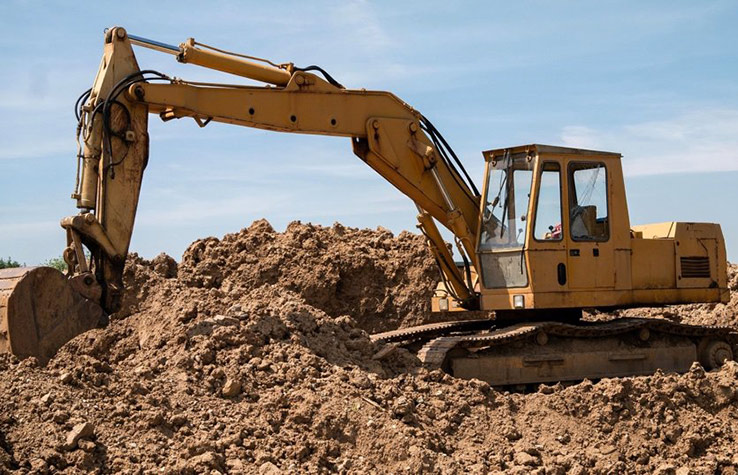
That rises to NOK 185.50 after one year's experience. Young workers under the age of 18 must earn at least NOK 119.30.
Cleaning staff
People employed as cleaners must be paid a minimum of NOK 181.43 if they are over 18, and NOK 133.39 if not. However, many cleaning jobs are required to be done in unsociable hours. Not all employers are honest about the extra money that must be paid in these circumstances!
There must also be a pay supplement of at least NOK 26 per hour for work between 9pm and 6am. The exact amount should be agreed on an individual basis.
Seafood workers
In Norway's large seafood industry, the basic hourly wage at the time of writing is set at NOK 173.10 for unskilled labourers and production workers, with an additional NOK 10.5 for skilled workers.
At the time of writing, the basic hourly wage is set at NOK 173.10 for unskilled labourers and production workers. Skilled workers must be paid an additional NOK 10.5 per hour.
Electricians
Many electricians are self-employed and can charge whatever the market can bear. But if your business grows and you hire others, then the following rules kick in.
Anyone employed to carry out installation, assembly and maintenance of electrical systems must be paid at least NOK 211.70 per hour. That rate applies to skilled, qualified workers. For other workers, the hourly rate is NOK 184.36.
Hospitality
For those employed in hotels, restaurants and catering, workers over 20 years of age and those 18 years old and above with at least four months of work experience must earn at least NOK 167.90 per hour.
There are lower rates for younger workers. They are NOK 110.33 for 16-year-olds, NOK 119.83 for 17-year-olds, and NOK 134.09 for 18-year-olds.
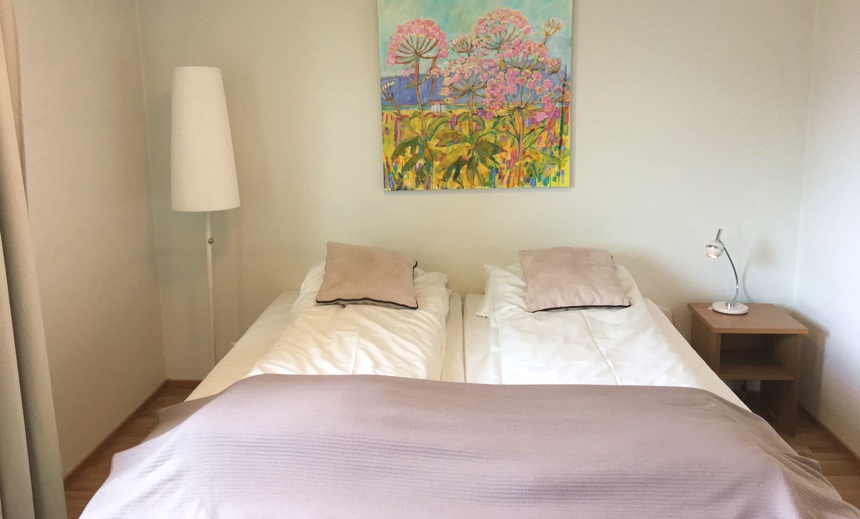
There are also agreed deductions from gross income for when lodgings are provided by the enterprise. These are 555.73 per month for a single room and NOK 361.45 per month if you are sharing a double or twin room.
As of 2019, employers in the service industry are required by law to report tips and gratuities as part of an employee's income.
Research
Salaries for research jobs tend to be openly available and published alongside the job advertisements. There is usually a scale advertised, and the specific amount offered will be dependent on experience.
Depending on the institute, role and candidate, a postdoctoral position tends to carry an annual salary of around 450,000kr, while research scientists will earn at least 500,000-600,000kr. Research scientists at private institutes or working in the private sector can expect more.
Au Pairs: There is a separate registration system for au pairs, or live-in nannies, and different rules apply. The family is required by law to pay you a monthly fee of 5,400kr.
Although the monetary compensation is very low, there are other benefits. Your travel to and from Norway, accommodation and food costs are covered by the host family.
There has been some controversy in Norway over the last few years about the use of au pairs. Some reports have criticised the practise as simply “cheap labour for the wealthy.” If you’re considering becoming an au pair, read this story first.
Minimum salaries in other sectors
Some sectors don't have collective agreements. In these cases, salaries are negotiated between the employer and employee.
Many companies will publish scales of pay or nevertheless adhere to industry standards, so you should know roughly what to expect in advance of an interview.
For example, industry figures state that full-time taxi drivers can expect to earn between NOK 370,000-410,000 per year, depending on location. Bus drivers in Norway can expect to earn an annual wage of between NOK 410,000-440,000.
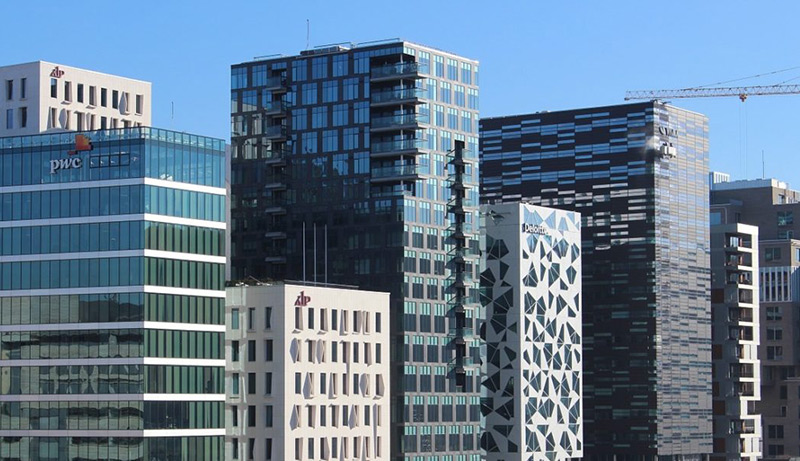
The Norwegian Labour Inspection Authority ensures these rules on salaries and working conditions are complied with. If the rules are violated, they can impose injunctions and fines, and report the matter to the police.
The Labour Inspection Authority also checks that companies are in compliance with the complicated rules on vacation entitlements and holiday pay.
Both these topics are implemented quite differently in Norway from many other countries. It’s important to understand them both as they can directly impact your earnings in your first year.
This is especially true of holiday pay. While new hires are entitled to full vacation time (25 days is typical), that vacation time is only paid if it was “accrued” the previous year. Ask your HR department to clarify exactly how they implement holiday pay.
Travel, board and clothing expenses
All employers are obligated to provide any protective working clothes and footwear.
For work that involves overnight stays e.g. construction, maritime construction and cleaning, the employer must cover expenses for the start and end of the assignment. Before the post begins, an agreement must be made to cover expenses for the duration.
As a general rule, the employer pays for lodgings, but a fixed payment alternative can be agreed.
Relative cost of living
The numbers on this page will seem very high when you simply convert them to US Dollars, British Pounds, or Euros. However, they can only be judged in comparison to the tax rates and most importantly, the high cost of living.
Getting set up in Norway is an expensive business. Even if you can find rented accommodation, you more often than not have to put down between one and three months' rent as a deposit, on top of paying the first month's rent in advance
Even if you are impressed with your prospective salary, research expected living costs for your own circumstances and then make your decision.
Interested in working in Norway? Find out more about working in Norway and some of the different available jobs.
If you enjoyed this post, why not share it on Pinterest? We've got just the pin for that:
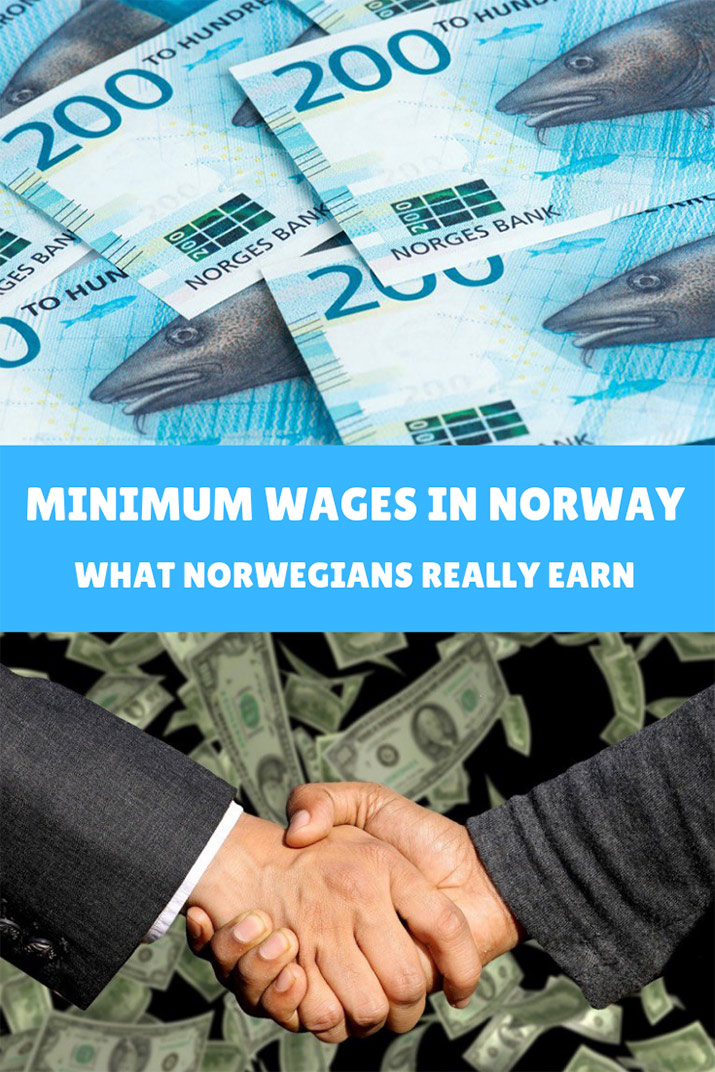





This country better than others countries
how?
Why don’t you tell us what doctors and lawyers an educated people may because it’s too close to what the labors make?
$117000 and up
$117000 and up, depending of the type of doctor. Lawyers can earn more or a little less, depending.
Don’t forget, you don’t have to be rich to get an education and become a doctor in Norway, just smart and dedicated. Everyone has the exact same opportunities.
Thus the differences between higher and lower wages are less extreme,yet you write like that is a bad thing. It’s still enough for ppl to want to get out on top. We just don’t punish those who don’t.
It’s security. As a parent, you can rest assured your offspring will manage a decent life even if they don’t succeed in every way.
According to information gleaned from this article, I am working in a skilled job well under the minimum wage for my profession. Consequentially, I will be asking arbeidstilsynet to investigate. This is something I / we have been wondering about for quite some time.
Thanks.
Have you gotten a response from Arbeidstilsynet yet?
I have a relative who manages a shop. The level of absence is far higher than in UK where you wouldn’t get away with constantly phoning in sick. I don’t know how anyone running a small business employing staff copes.
You can say that again. My brother who ran a supermarket; years ago; complained of the large absenteeism ( Oslo) and said the “the Government sew pillows under their arms”. You could just book sick for three days, without giving any reason; and this was already so in the seventies. God knows what the situation is now; but from the complaining I hear from some relatives there; it is not the land of “milk and Honey” it pretends to be. Perhaps the land of oil; but somehow; oil is hard to swallow for the average person. The social security blanket provided for the hoipolli seems to keep them from rebelling; but complaining they do aplenty.
It’s not the land of milk and honey and my husband tells me if all the absenteeism at his job all the time. People constantly call in sick and managers are not allowed to ask why. Refugees and immigrants are being exploited by creepy managers and business owners that refuse to pay them the customary wage, they are forced to sign contracts that say they are being paid the correct wage and in reality only get half of it. Apparently this is common. Taking a page right out of the USA playbook when it comes to treating workers like deal just because they are not citizens.
Ooh Margaret…
Do we pretend anything? What you write is actually only half right.
1. You have a finite number of sick days where you can call in sick. Would you want a sick person at work, doing a bad job making other people sick as well, including your customers. Or perhaps doing mistakes, worst case lethal ones, because they are not fully focused?
2. If you’re so sick you can’t work for a longer time you need to go to the doctors, and you’ll get a long term leave due to sickness. By long term I mean anything from days to a year. The employer has to pay your salaries for the first 14 days, after that the government takes over. There are saveral conditions here, and the focus is to have the employee work as soon as possible, either full or part time.
3. If the employee is limited by sickness or injures in such a way they cannot work within their field of education, they can apply for a government sponsored re-education program while getting payed a monthly salary.
4. We don’t spend the money from the oil, we invest it and spend a percentage of the surplus.
Read an article that Norway’s life expectancy ,from memory,is under 80 years.This, for example ,is below Australias.The main reason given was that there was a lot of depression in Norway and that it is hard to find work.
I cannot vouch for the veracity of these claims,but that is what I read.
Benton,
It takes a minute to look this up.
Life expectancy
Norway (2016): 82.51 years
Australia (2016): 82.50 years
and for comparison
Sweden (2016): 82.20 years
United Kingdom (2016): 80.96 years
United States (2016): 78.69 years
As for depression and life expectancy… Suicide rate per 100,000 (2016)
Norway 10.1
Australia 11.7
Sweden 17.3
United Kingdom 7.6
United States 13.7
i did not get an answer to my question. Can anybody tell me what is the minimum wages for skilled worker in hotel and restaurant in Norway please?
157.18 norwegian kroner per hour
From reading the exertion I would say salary for hospitality is nok173.10 for unskilled worker and only 10nok more for skilled worker. Me
Roshan: scroll up and try to find Hospitality, you will find answer to your question.
Very hard for norwegian nationals with foreign names in securing employment.
Please tell me how to figure the Norwegian salary translated into English so I can compare. Thank you! Tak!
Did not mention that vat, “sales tax” is 25%, gas is twice that of the us
Toll roads all over. Exorbitant parking fees, if you have a cellphone provided by your work, and you use it for private use, another tax. if you have free parking at work, another “ benefit “ you will be taxed for.
So… your “high” wage is quickly reduced.
To be fair all this should be mentioned to be fair about income in Norway.
True, but if you’re sick you get help. If you have a baby you get one year leave and monthly payments until the kid is 18. If you loose your work, you get a good percentage of your salary and help getting a new job. If an injury prevents you from doing what you’re educated as, you’ll get free re-education, everyone can afford education and can take higher degrees, and so on.
BTW, 60% of cars bought in Norway is electric. I’ve driven electric for 8 years now.
Norway is far from perfect, but the things you point out really is not a problem.
Plus the fact that many things cost at least double the cost you might find in other countries. I bought something to repair my car the other day for 250nok from Poland, same thing here in Norway cost 950nok…
New cars cost around double, older cars can be triple the cost of say the UK.
Fuel is reasonable, not much more than elsewhere so the higher wages more than offset it.
Tax and payments to the government/local authorities are high, but the services received are also good. Health service focuses on preventative care.
Overall, we earn more, but save less than we did in the UK. However I consider our standard of living to be higher. Better house, but older car. Better holidays, but less to spend on going out etc.
I can’t imagine ever going back…
I have lived in Norway for over 40 years, and to me is the best country in the world. I you don’t like it move back to the country you came from.
Easy mate. No need to be so nationalistic considering you are not even Norwegian. You either come from a country where you earn shit or allow yourself to be a donkey who doesn’t know better. Everyone can express their opinion. Norway is only nice in summer otherwise very cold, depressing, expensive country where people are simply scared to try something new.
good comment
Thanks David! I am a naturalised British citizen, originary from France. Whenever I point out how things could be made better in the UK (proportional representation instead of First Past The Post; more affordable rental housing with more security for tenants; better public transport), some person or other will come up with ‘If you’re not happy here, why don’t you go back where you come from?’ It reminds me of when I was working as a tutor in France. The parents would always moan ‘The French/English/Maths teacher doesn’t like my son…’ and when I would point out mistakes, they would conclude ‘You don’t like my son!’ Like they were paying me to say ‘Oh, your son is a genius, he doesn’t need me, no one can teach him anything…’
Yes
I definitely see the positives and the negatives regarding income and cost of living. Higher tax rate with better benefits. Where in the USA we have a lower tax rate and more freedom to do what we want with our money. Much lower cost of living depending on the area. Lower cost of foods and goods. Much lower gas prices. I did the math from liters to gallons and NOK to US dollars and figured Norway was about $16/gallon when we went in September 2018. $75 easy to fill up a tiny mini car. In the US we bounce around $2.25 to $3 per gallon. We thought this was strange given all our oil is imported and Norway drills and refines it’s own.
Whatever gives you the idea that all the oil in the USA is imported?? Old info! The USA is an oil and gas exporter since fracking started. For better or for worse ! !
The outsiders commenting on this articles are not in touch with the system. Those who call in sick are paid by the office of social welfare called NAV……. actually, they are paid from their tax kitty…… now you should stop wondering why the tax in Norway is so high……….
Though every system got its weaknesses, it is misleading of those who say that Norwegian system pretends to be what it is not…… travel all over the world and identity a country that is so focused on the welfare of it’s people than Norway…….
This country is amazing 🤗
Prices are net or gross salaries please? As taxes are 50per cent and it does matter if a cleaner earns 3000 euro a month or just 1500…
They are gross, of course. Tax is impacted by personal circumstances so it’s impossible to quote net salaries. That being said, tax is nothing like 50%, did you read that on Fox News? Most people pay something like 30-35%.
Hey guys!
I hope all of you are keeping well.
I would like to know the job scopes with regards to the healthcare sector in Norway. I currently posses a Bsc in Biomedical science and I am planning to do my Msc in Bioscience at the University of Oslo or Biomedical science at University of Bergen. After my post graduate studies, I would like to focus on my ambition, which is to be either a molecular pathologist, research assistant or to work in a lab of a hospital.
I would like someone to guide me on what I should know. Of course, I am learning the language. Anything else, any heads up ?
I would really appreciate if someobe could guide me. Thank you in advance !